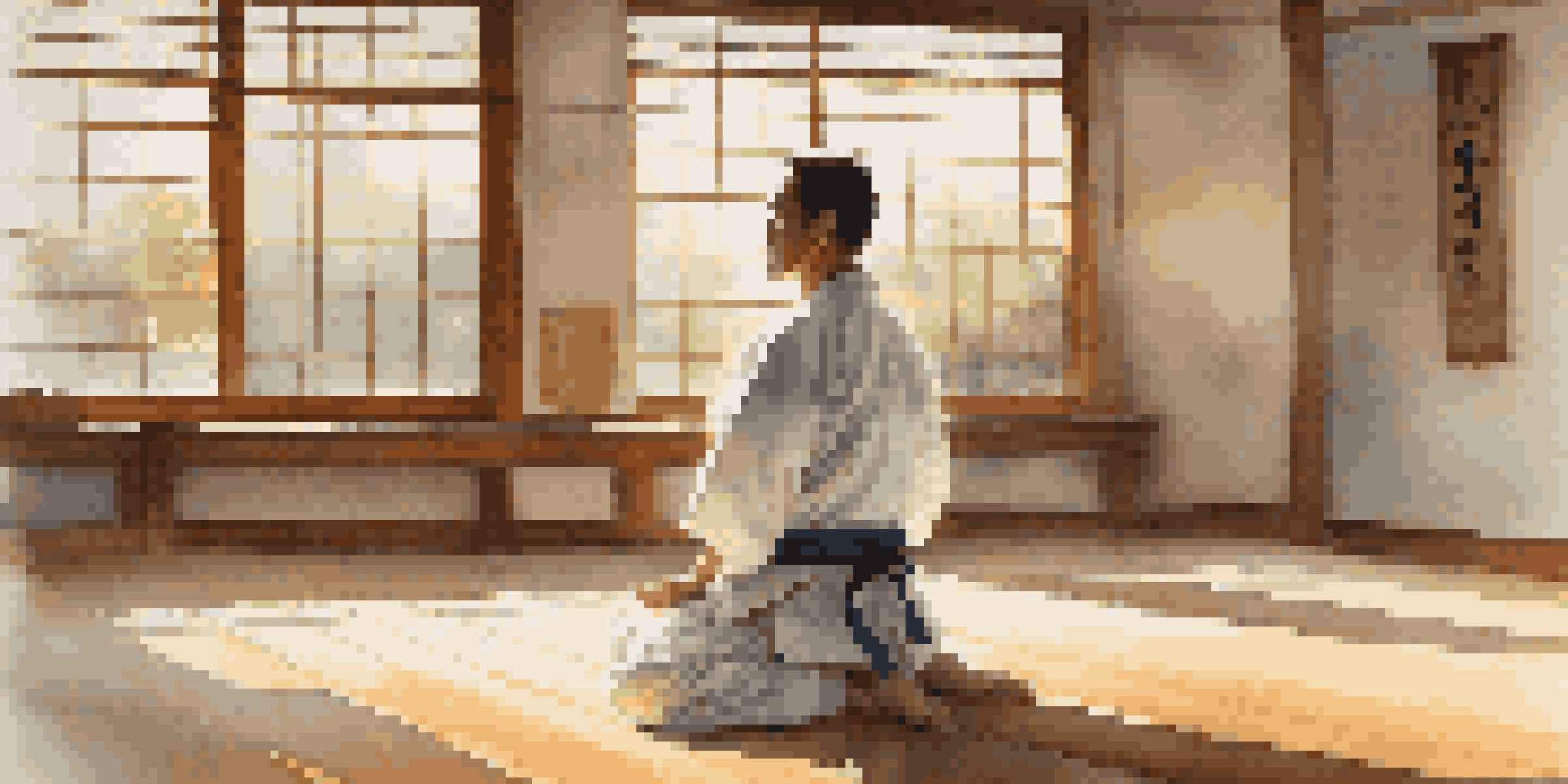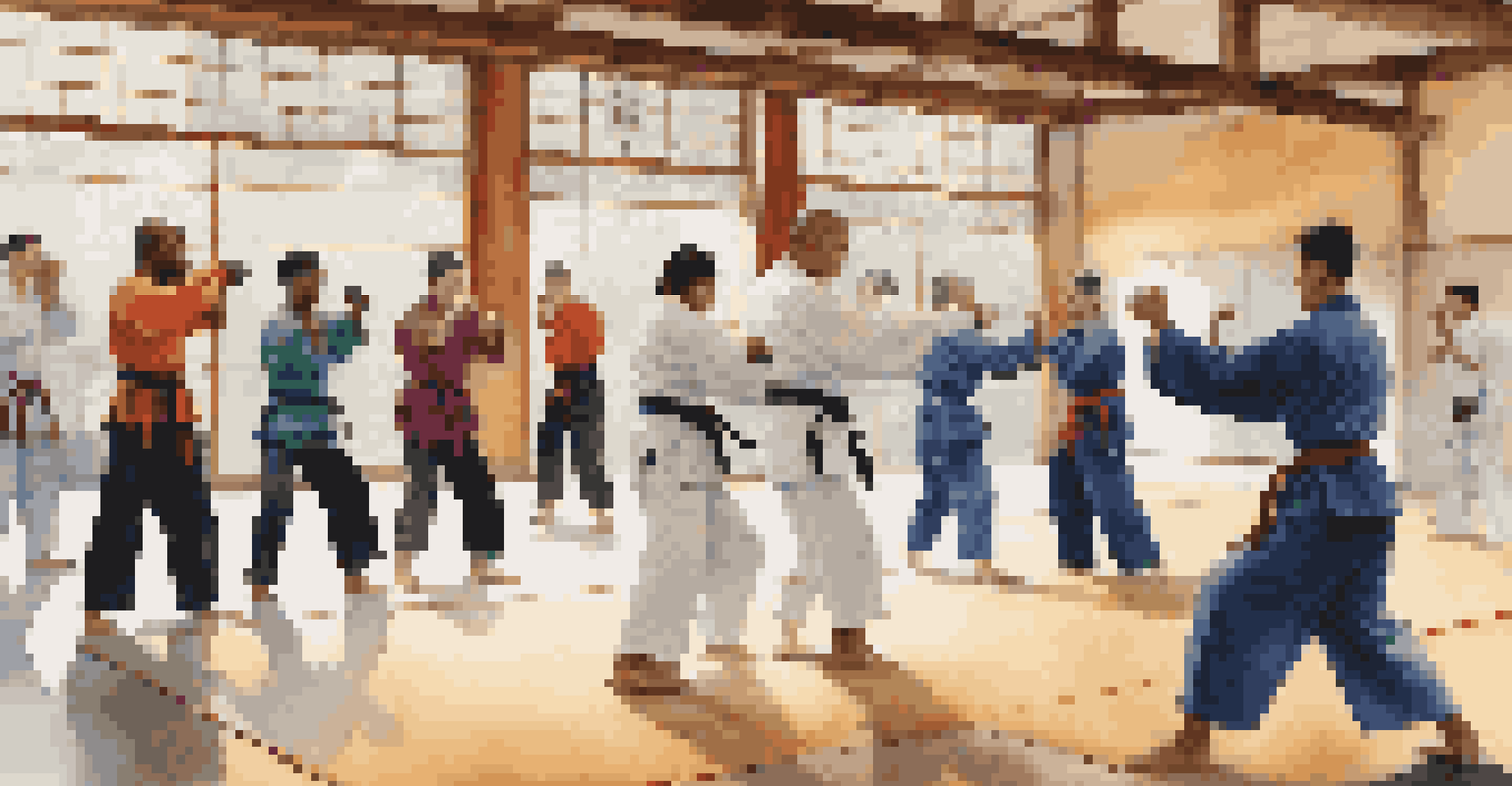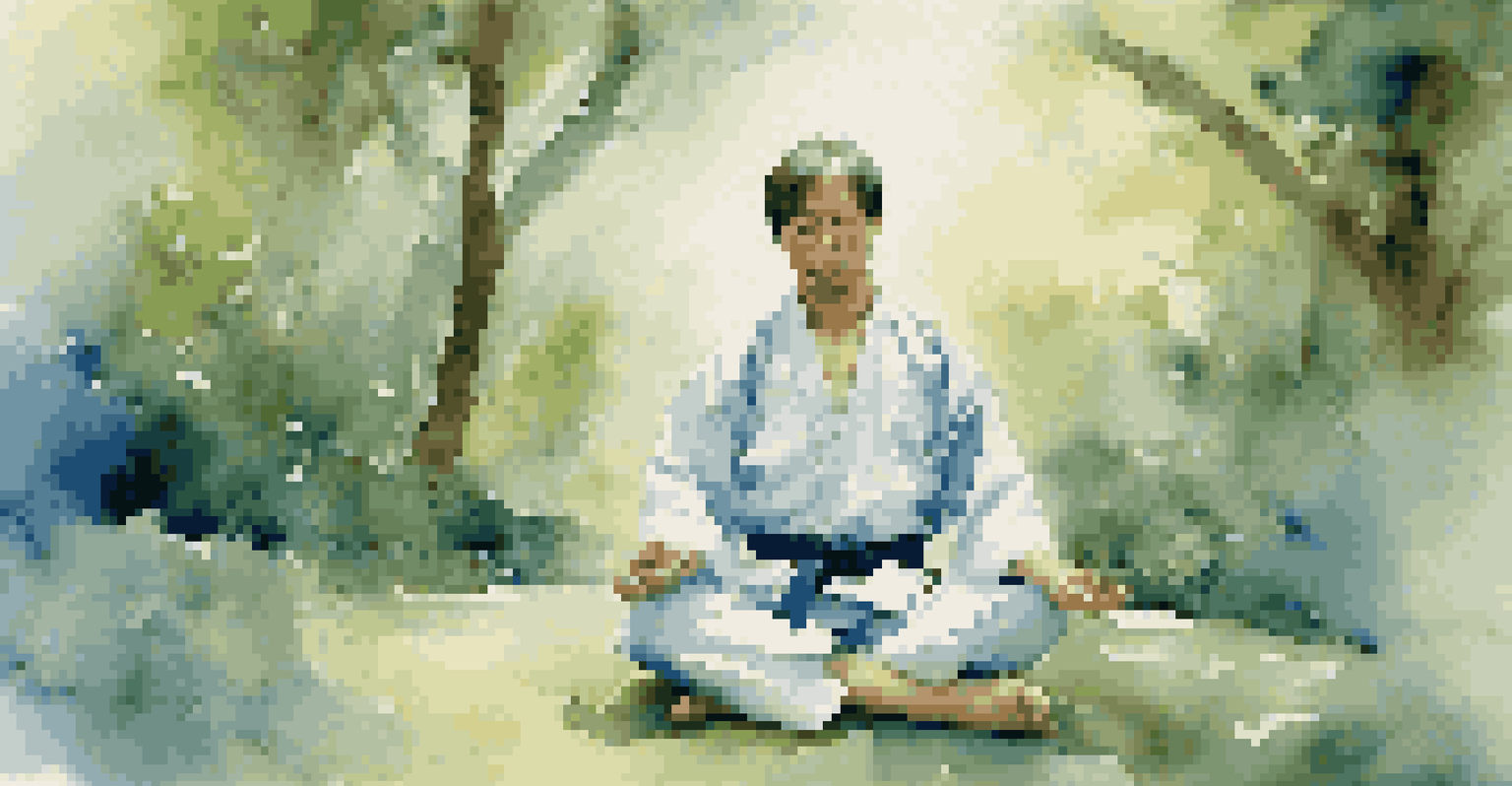How to Overcome Fear in Martial Arts Training

Understanding Fear: A Natural Response in Training
Fear is a natural and common emotion experienced by many practitioners in martial arts. It's essential to recognize that this feeling can arise from the unknown, whether it's the fear of injury or not performing well. Understanding that fear is a part of the learning process can help normalize it, making it easier to manage as you progress.
Do not be afraid to fail. Be afraid not to try.
Every martial artist has faced moments of doubt, especially when trying a new technique or sparring for the first time. This shared experience can create a sense of camaraderie among students, reminding you that you are not alone in your feelings. By acknowledging your fear, you can begin to take steps toward overcoming it.
Remember, even the most skilled martial artists started as beginners, grappling with their own fears. Embracing this perspective can help you view your challenges as opportunities for growth rather than obstacles.
Setting Realistic Goals to Build Confidence
One effective way to combat fear is by setting realistic, achievable goals for your training. Instead of overwhelming yourself with the idea of mastering an entire martial art, focus on small milestones, like perfecting a specific technique or increasing your sparring time gradually. These bite-sized goals can lead to a more manageable learning experience.

By celebrating each small victory, you can cultivate a sense of accomplishment that boosts your confidence. For instance, if you successfully execute a kick you’ve practiced, take a moment to acknowledge your progress. This positive reinforcement can help diminish the power of fear over time.
Fear is Part of the Journey
Recognizing fear as a natural response in martial arts helps practitioners manage it as part of their learning process.
Over time, as you achieve these smaller goals, you'll find that your fear begins to lessen. With each accomplishment, you build a solid foundation of skills and self-assurance, making the next challenge feel less daunting.
Visualization Techniques to Prepare Mentally
Visualization is a powerful tool that many athletes use to enhance performance and overcome fear. By mentally rehearsing techniques or sparring scenarios, you can create a sense of familiarity that helps reduce anxiety. Picture yourself confidently executing a move or successfully defending against an opponent; this mental practice can translate into real-life performance.
The only thing we have to fear is fear itself.
Consider setting aside a few minutes each day to practice visualization. Close your eyes, take deep breaths, and imagine yourself in a training session, feeling strong and capable. This practice not only prepares you mentally but also fosters a positive mindset before you step onto the mat.
By regularly incorporating visualization into your routine, you can train your mind to respond positively to challenges, making it easier to face fears head-on when they arise during training.
Breathing Techniques for Staying Calm Under Pressure
When fear strikes, our bodies often respond with physical symptoms like increased heart rate and shallow breathing. By practicing specific breathing techniques, you can help calm your mind and body, allowing you to focus better on your training. Techniques such as deep belly breathing can slow your heart rate and promote relaxation.
Try taking a few deep breaths before entering the training area or during moments of heightened anxiety. Inhale deeply through your nose, hold for a moment, and exhale slowly through your mouth. This simple exercise can ground you, providing a sense of control in stressful situations.
Set Achievable Goals
Breaking down training into small, realistic goals can foster confidence and lessen fear over time.
Incorporating breathing exercises into your martial arts practice not only helps you manage fear but also enhances your overall performance. You'll find that staying calm can lead to clearer thinking and improved reaction times during training.
Finding a Supportive Community in Training
Having a supportive training environment can significantly impact your ability to overcome fear. Surrounding yourself with encouraging instructors and fellow students can create a safe space where you feel comfortable expressing your concerns. A positive community fosters growth, allowing you to tackle challenges without judgment.
Participate in group activities or sparring sessions where everyone is focused on mutual improvement. This camaraderie can help ease the fear of competition, as you realize that everyone is working towards their personal best. Sharing experiences and discussing fears with peers can also lead to valuable insights and strategies.
Remember, everyone in your martial arts community has faced their own fears. By leaning on each other for support, you can build confidence collectively and create an atmosphere where overcoming fear becomes a shared journey.
Embracing Failure as Part of the Learning Process
Fear of failure is a significant barrier for many martial artists. However, it's essential to understand that failure is not the end; it's a stepping stone toward improvement. Embracing mistakes as opportunities to learn can shift your perspective and reduce the fear associated with them.
Consider how even the most skilled martial artists have faced setbacks, whether it's losing a match or struggling with a technique. Each failure provides valuable lessons that contribute to growth. By reframing your mindset, you can view challenges as part of the journey rather than as something to fear.
Community Support Matters
A supportive training environment encourages open communication about fears, facilitating collective growth among martial artists.
Incorporating this mindset can lead to a more enjoyable training experience. As you learn to embrace failure, you'll feel freer to experiment with techniques and take risks, ultimately improving your skill set over time.
The Power of Consistency in Overcoming Fear
Consistency is key when it comes to overcoming fear in martial arts training. Regular practice helps you become more familiar with techniques, environments, and sparring partners, which can diminish fear over time. The more you engage in training, the more confident and capable you will feel.
Establish a routine that allows for consistent practice, whether it's attending classes, working on techniques at home, or sparring with friends. As you dedicate time to honing your skills, you'll notice a gradual reduction in anxiety levels. This sense of routine can create a comforting familiarity that eases fear.

In the long run, embracing consistency not only builds your skills but also strengthens your mental resilience. You'll find that as you keep showing up, your fears will start to lose their grip on your training experience.